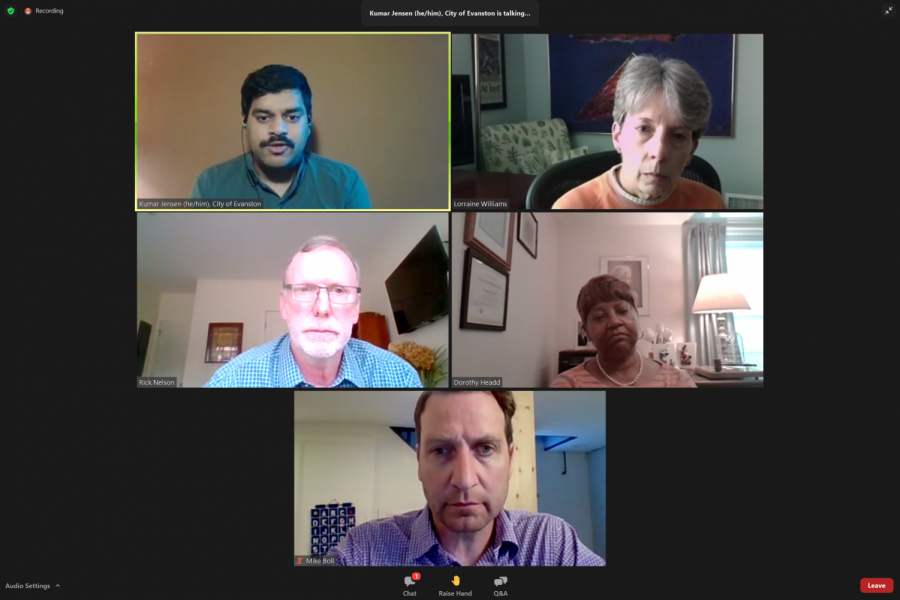Community leaders discuss environmental justice at Citizens’ Greener Evanston Event
William Clark/The Daily Northwestern
Evanston environmental leaders discuss environmental justice issues and advocacy. The virtual panel was hosted by Citizens’ Greener Evanston as part of their “Earth Week for Everyone” series, which is taking place Thursday through Saturday in honor of Earth month.
April 23, 2021
Evanston community members and environmental leaders discussed the Church Street Waste Transfer Station, the city’s environmental policies and other local concerns at a virtual panel Thursday.
The event was part of Citizens’ Greener Evanston’s “Earth Week for Everyone” series, which is taking place Thursday through Saturday in honor of Earth month.
Kumar Jensen, Evanston’s chief sustainability and resilience officer, said there has been increased collaboration between environmentalist and racial justice groups in recent years.
In September 2020, the Evanston City Council adopted the Environmental Justice Resolution, which aims to ensure that residents have equal access to environmental assets and protection from environmental harms.
The resolution has yet to be translated into any city ordinances. During his campaign, Mayor-elect Daniel Biss told The Daily that leaving the resolution as a concept on the shelf would be a “disservice” to communities affected by environmental injustice. He said he plans to create a citywide map identifying regions that have experienced disproportionate environmental harms, a project the city’s Office of Sustainability has been developing.
“We expect this to take a little while, but we hope that in the near future — so hopefully the summer — we’ll be able to start publicizing what that process will look like and how people can be involved in it,” Jensen told The Daily earlier this week.
Evanston resident Dorothy Headd — whom the city recently honored with a street name for her environmental justice advocacy and other community work — discussed the Church Street Waste Transfer Station. The facility, which is located in the 5th Ward, is a site where trucks dump trash to be stored until larger trucks pick it up and transport it to a landfill.
Headd and other 5th Ward residents have been involved in activism surrounding the waste transfer station for several years. Although research into the site’s impact on human health is ongoing, a six-month air-quality study conducted in 2019 recommended further inquiry into the potential effects of formaldehyde and nitric oxide on human health.
“These waste transfer stations are normally located in low-income, minority neighborhoods,” Headd said. “I don’t think it’s getting worse, but I certainly don’t see any real change… in my neighborhood.”
Jensen said there are limitations on how the city can address the waste transfer station since it’s permitted by the state. However, he said he’s optimistic that the city can use other tools to reduce the station’s environmental impact while working toward its eventual closure.
During the mayoral campaign, all three candidates told The Daily they thought the waste transfer station may be in violation of the Environmental Justice Resolution.
Resident and panelist Lorraine Williams said air and soil pollution pose threats at the waste transfer station, as well as in the neighborhoods near the Tapecoat factory and a concrete manufacturing facility on Oakton Street.
“We need a sweeping approach to (addressing environmental justice),” Williams said. “In the long run, everyone is affected by each other’s troubles and struggles, and we raise each other up by working together.”
Email: [email protected]
Twitter: @willsclark01
Related Stories:
— Environment Board and Equity and Empowerment Commission propose changes to Environmental Justice Resolution
— The Daily Northwestern’s Climate and Environmental Policy Guide to Evanston’s Mayoral Candidates
— School crossing guard and community member Dorothy Headd honored with street name


